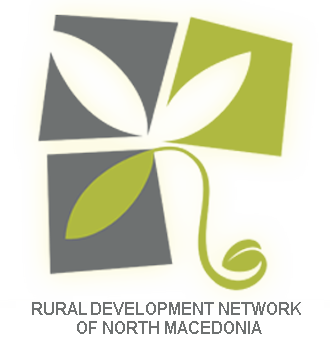
On November 4th, in Shtip, the Rural Development Network of the Republic of Macedonia (RDN of the RM) organized the event “LAG – from local initiative to leading concept for rural community development” to promote 4 Local Action Groups (LAGs) initiatives created in accordance with the EU LEADER approach. Supported by the USAID Adaptation to Climate Change in Agriculture (ACCA) project, RDN provided a comprehensive capacity building training program on EU LEADER approach specifics encompassing stakeholders of the public, civil and business sector from 17 municipalities in the Eastern and Southeastern region of Macedonia. As a result of this process, the four LAGs finalized 4 Local Development Strategies incorporating actions to improve stakeholders’ inclusion in the decision making process for issues with relevance to their local community.
In his remarks, USAID Mission Director, Mr. James Stein, noted that “The methods that we employ to protect our communities must focus on co-operation, integration, innovation and partnerships. We must use a bottom-up approach where local actors design the strategy and choose the actions, as they are the ones closest to the problem and therefore closest to the solution. LAGs are fundamental to successes in local rural development. It’s this grass roots approach that unites local stakeholders and brings them together, to identify priorities and workable projects that achieve the results their regions desire. LAGs drive local development, and belong on the front lines for delivery of the local development agenda. I am proud that the USAID Adaptation to Climate Change in Agriculture project incorporates inclusive and innovative approaches such as LEADER and the establishment of LAGs to address important issue such as climate change.”
The President of the Rural Development Network of the Republic of Macedonia (RDN of RM), Mr. Petar Gjorgievski, the Director of the Center for Development of East Planning Region, Ms. Dragica Zdraveva and the representative of the Center for Development of Southeast Planning Region, Mr. Risto Chivchiev also gave remarks before the presentations delivered by the representatives of the four LAGs initiatives.
“When we talk about Local Action Groups and their Local Development Strategies, we always put them in the context of LEADER approach as basis for its further implementation. What is the most important and should be mentioned is that LEADER will be introduced as one of the new measures within IPARD II program. Hence RDN’s expectations are even greater after the Ministry of Agriculture, Forestry and Water Economy has started the process for the preparation of this measure and is ready together with its members to contribute in LEADER implementation. RDN has established partnership cooperation with the Ministry of Agriculture, Forestry and Water Economy and other governmental institutions at national and local level as well as with relevant stakeholders of NGOs and business sector, to further increase the rural communities’ absorption capacity for new knowledge and experiences in relation to the LEADER approach”, noted Mr. Petar Gjorgievski in his remarks.
In 2014, in the frames of the USAID ACCA project, RDN partnered with the Strumica, Vasilevo, Bosilovo and Novo Selo municipalities from the Southeastern region in addressing climate change adaptive measures through the regional Local Action Group (LAG) strategy. The local actors were involved in creation of a Local Action Group (LAG) as the central mechanism and structure for governance of the rural development in the targeted areas, and in creation of the Local Development Strategy as a central document which defines the set of priorities and measures for rural development, through a series of trainings, guidance and coaching methods. RDN worked with LAG constituents (rural communities, business and NGO sector) from these four municipalities on simulation of LEADER approach methodology and implemented three small scale rural development projects with emphasis on activities related to adaptation to climate change in agriculture. The LEADER methodology piloting through the implementation of small scale rural development projects have proved to be very efficient tool in inducing rural stakeholders’ responsiveness to issues relevant to climate change.
The positive experience from working with these municipalities, served as basis for development of activities in other municipalities in the Eastern and Southeastern Planning Region. Therefore, RDN carried out a capacity building process within 17 municipalities of the East and Southeast Planning Region, which resulted with creation of 4 LAG initiatives: LAG Bojmija (territories of Gevgelija, Bogdanci, Valandovo and Dojran); LAG Plachkovica (territories of Shtip, Karbinci, Konche and Radovish); LAG Bregalnica (territories of Probishtip, Makedonska Kamenica, Vinica, Kochani, Zrnovci and Cheshinovo – Obleshevo) and LAG Malesh- Pijanec (territories of Berovo, Pehchevo and Delchevo).
RDN of RM has a pioneering role in affirmation of EU LEADER in Macedonia as an innovative approach in the framework of the EU rural development policy to stimulate equality and unity of all stakeholders in the processes of policy building, decision making and implementation of activities related to rural development. Thus, RDN, as a local organization, will continue, beyond the life of project, its assistance to the LAG initiatives and to the Ministry of Agriculture, Forestry and Water Economy in the process of launching EU LEADER as a future IPARD measure in Macedonia.
